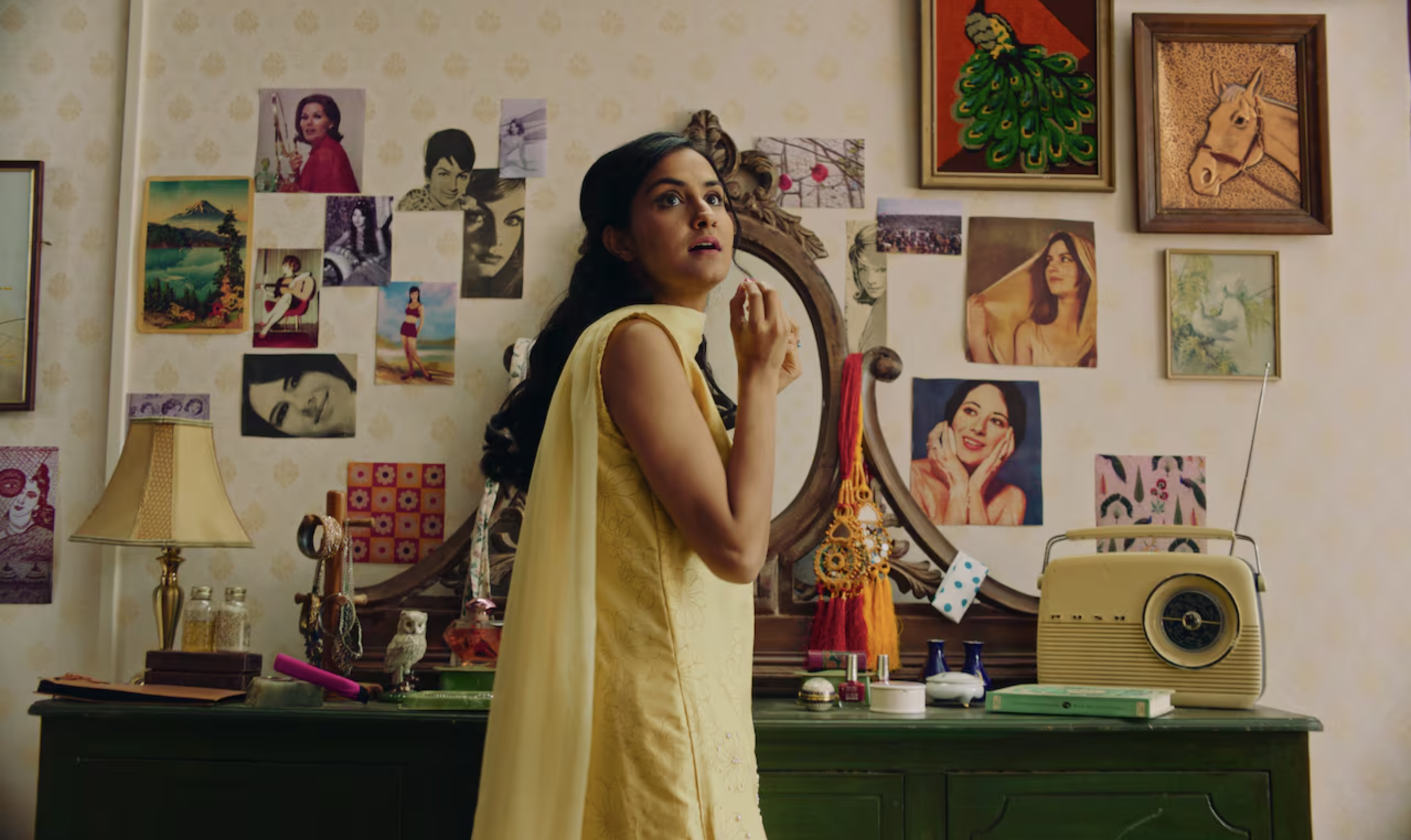SIFF Advance: THE QUEEN OF MY DREAMS
Directing: B
Acting: B+
Writing: B
Cinematography: B
Editing: B-
There’s something sort of infectious about The Queen of My Dreams, for all its imperfections—or maybe because of its imperfections. It’s an unusual vibe in cinema, where if the movie had greater polish, I’m not sure I would have liked it as much.
The story is certainly unique: a queer Pakistani-Canadian woman named Azra must travel back to Karachi for mourning rituals when her father, having traveled for a visit back home with her mother, dies of a heart attack. The story cuts back and forth between Azra’s “present” in 1999, and when her mother was around the same age and being courted in Karachi, in 1969.
Never mind that we never see movies like this as written, but the most novel thing about The Queen of My Dreams is that Amrit Kaur (The Sex Lives of College Girls) plays both Azra, and Azra’s mother, Mariam, in 1969.
Writer-director Fawzia Mirza—herself a queer Canadian of South Asian descent—employs a fairly clever conceit here, throwing in a line among her extended family about how much Azra looks like Mariam did at the same age. After this, it’s no surprise when we see Kaur playing the part in 1969, never mind the fact that she really doesn’t look much like 1999 Mariam, played by Mimra Bucha, at all. There’s even a slightly awkward transition between 1960s Mariam to early-eighties Mariam, when the character suddenly transitions from Kaur to Bucha, but it hardly matters. Here, we get a different actress playing younger Azra (Ayana Manji), even though Azra’s brother, Zahid, is played by Ali A. Kamzi as both an older teenager and as an adult.
I guess I’m saying that the timelines in The Queen of My Dreams, with inconsistencies of who is cast in certain ones, are a little muddled. Somehow the movie still works, due more than anything to Amrit Kaur herself. She is in by far the most scenes, it’s never confusing whether it’s the 1999 “present” or the 1969 “past,” and she gives performances that are distinct enough to make the different characters clear but similar enough to feel like we’re watching a mother and her daughter at different times. It doesn’t hurt that Kaur has a face that just radiates light and charisma onscreen.
The genre of The Queen of My Dreams is a little harder to pin down. If pressed, I’d say it’s a dramedy, although it might more accurately be called a “fun drama.” It has both utterly charming sequences and periods of straightforward earnestness. Azra’s queerness seems a bit tricky, as Fawzia Mirza’s script regularly acknowleges it directly, but never truly makes it part of the story. Under normal circumstances I might love this, except it’s also clear that Azra is closeted to her parents (a spin-the-bottle scene Mariam interrupts with some consternation notwithstanding), and this detail is never given any resolution. Maybe this is just a standard way of living for many queer children of South Asian immigrants? I’ll grant that I’m just a White guy who has no idea, and am unsure if the fact that it played oddly in the film was because of my ignorance or because of legitimate narrative defect.
In any case, Azra’s queerness takes a backseat to the story of her relationship with her mother—although much is made of Azra’s frustration with being segregated from the men in all the mourning rituals, being denied certain privileges of staying with or burying the body. The film ends on a slightly uplifting note between Azra and Mariam, offering a bit of hope for them, although no more than we have already seen plenty of in their lives up to this point, much of it a mutual love for Bollywood movies. Perhaps a loving relationship that obscures some deep self-repression is simply all these two will ever know.
There could be many reasons I didn’t fully get The Queen of My Dreams, but I certainly enjoyed it while it played out.
Amrit Kaur, the most watchable thing onscreen.
Overall: B

